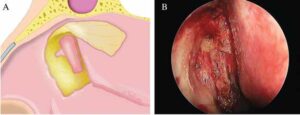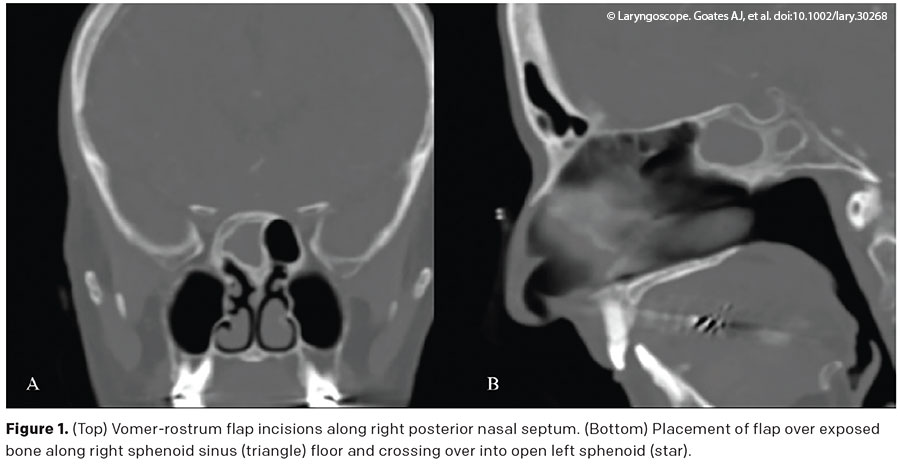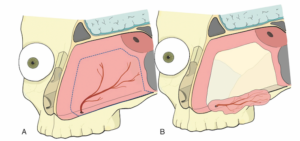Dupilumab and functional endoscopic sinus surgery are equally effective in reducing chronic rhinosinusitis with nasal polyps symptoms, according to Sino-Nasal Outcome Test (SNOT-22) scores.

What Really Works in Functional Rhinoplasty?
Functional rhinoplasty is an umbrella term used to describe the various surgical techniques that alter the external nasal structure with the goal of improving nasal breathing. Numerous techniques have been described and shown to be successful.
Endoscopic Sinus Surgery More Cost-Effective than Dupilumab in Treatment of Patients with Rhinosinusitis with Nasal Polyps
Dupilumab is a novel monoclonal antibody that shows promise in treating patients with CRSwNP who fail initial medical management. ESS, the mainstay therapy for CRSwNP, has been shown to be clinically effective and cost-effective when compared to long-term medical management.

How To: Modified Endoscopic Dacryocystorhinostomy Nasal Mucoperiosteal Flap Technique
Due to its facial scar avoidance, better accuracy in locating the lacrimal sac, and decreased blood loss, endoscopic dacryocystorhinostomy (eDCR) has become much more popular than external approaches.
Diclofenac Sodium Not Inferior to Hydrocodone/Acetaminophen for Postoperative Pain After Endoscopic Sinus Surgery
This study provides additional evidence that we may be able to minimize narcotic pain medication use and reserve it for patients who are uncontrolled on NSAIDs alone.

How To: Vomer-Rostrum Mucosal Flap for Exposed Bone Coverage After Sphenoid Sinusotomy
Ansa Cervicalis Stimulation could become a viable ancillary respiratory neurostimulation (RNS) strategy for patients with insufficient responses to hypoglossal nerve stimulation (HNS).
Prolonged Operative Time Associated with Multiple Adverse Outcomes in Endoscopic Sinonasal Surgery
Prolonged operative time is associated with several adverse outcomes following endoscopic sinonasal surgery, including prolonged hospital length of stay, overall surgical complications, and bleeding.
Nasal Discharge the Sole Symptom Improved by Nasal Saline Treatment in Patients with Acute Rhinosinusitis
Nasal discharge was the only symptom significantly improved by nasal saline treatment in patients with acute rhinosinusitis.

How To: Multilayered Closure of Oronasal and Oroantral Fistula Using Intranasal and Intraoral Flaps
Multilayered repair of OAF–ONF using a pedicled intranasal flap combined with an intraoral local flap facilitated excellent closure in patients.

How To: Oroantral Fistula Closure Using Double-Layered Flap
The aim of oroantral fistula management is to repair the defect, restoring the integrity of the sinus and oral cavity and preventing sinus infections.
- « Previous Page
- 1
- …
- 4
- 5
- 6
- 7
- 8
- …
- 30
- Next Page »